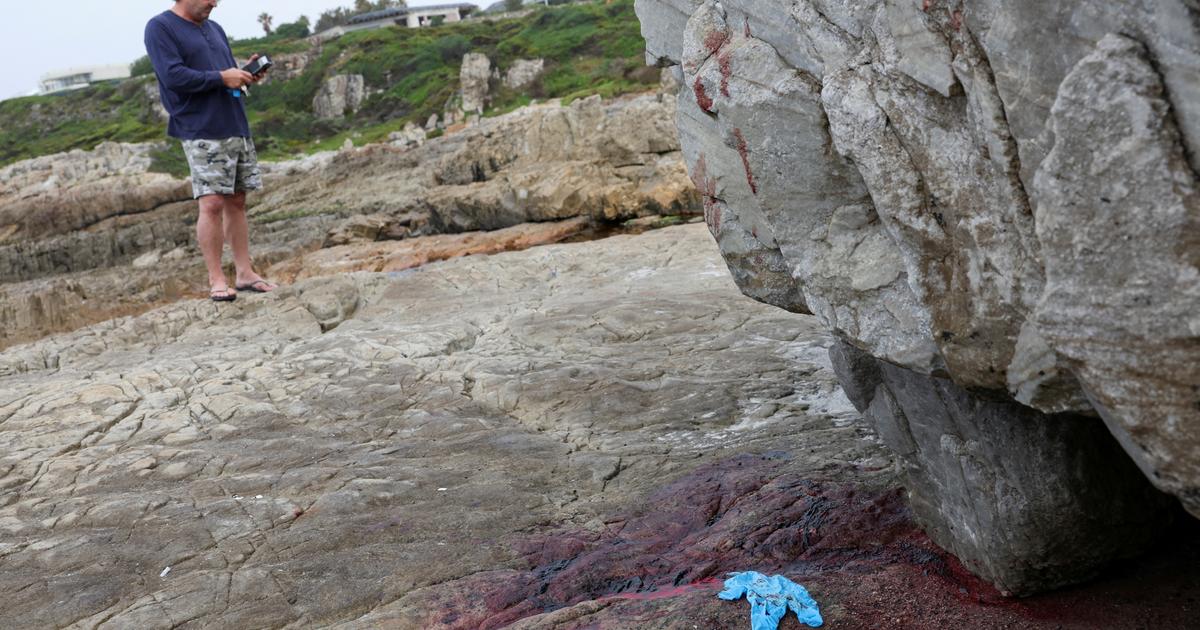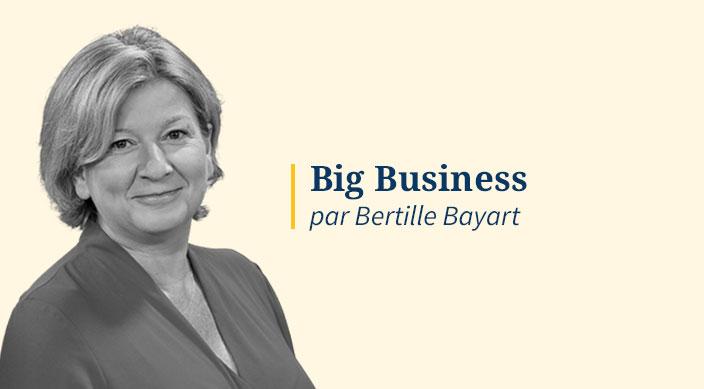Enlarge image
Markus Braun:
The former Wirecard CEO has been in custody for almost 20 months - and rejects all allegations
Photo: FABRIZIO BENSCH / REUTERS
After more than a year and a half of investigations, the Munich public prosecutor's office has brought charges against former Wirecard boss Markus Braun.
The investigators accuse Braunn, his chief accountant and the deputy of the payment processor in Dubai of accounting fraud, market manipulation, breach of trust in several cases and commercial gang fraud.
This was announced by the Munich I public prosecutor on Monday.
Braun and the other Wirecard managers had worked for years to make the company look more successful than it actually was.
"For this they allegedly invented extremely profitable businesses, especially in Asia," the statement said.
The indictment is 474 pages long.
Braun has denied the allegations and sees himself as a victim of his former board colleague Jan Marsalek, who has been on the run since June 2020.
At that time, Wirecard had to file for bankruptcy due to a balance sheet hole of 1.9 billion euros, and the share price plummeted.
Insolvency administrator Michael Jaffe assumes that the money never existed.
In fact, Braun and his managers have known since 2015 at the latest that Wirecard was making losses, according to the indictment.
With the pretense of allegedly flourishing business, they had stolen 1.7 billion euros in loans and 1.4 billion euros in the form of bonds from banks.
340 companies, 450 people and 1100 accounts checked: This is how the prosecutors proceeded
According to the public prosecutor, the investigations proved to be extremely difficult, even compared to the usual large-scale commercial proceedings.
The facts to be determined were extremely complex, extended over several years and largely took place outside of Europe.
At the public prosecutor's office, a team from Department IX, which has great expertise in handling large-scale commercial proceedings, conducted the proceedings.
The investigative team received support from the public prosecutor's office responsible for international legal assistance and, in the area of asset recovery, from the Central Coordination Office for Asset Recovery in Bavaria at the Munich Public Prosecutor's Office.
For the investigation, the special commission "Trustees" was set up at the police headquarters in Munich, which consisted of up to 16 police officers experienced in economic criminal proceedings.
There were also three economists who specifically evaluated accounts, other officials who primarily worked on the necessary financial investigations and the confiscation of assets, and target investigators who took over the search for the fugitive suspect M.
About 340 companies, 450 people and more than 1,100 bank details were recognized as relevant by the SoKo "Treuhänder" and checked in detail if they were of appropriate importance.
450 interrogations were carried out.
Help from liquidator Jaffé
Around 40 search warrants were executed for searches in Germany alone.
There were also a large number of searches carried out abroad.
A total of around 90 European investigation orders or requests for legal assistance were issued, for example to Belarus, Brazil, France, Greece, Great Britain, Ireland, the Isle of Man, Italy, Canada, Liechtenstein, Lithuania, Luxembourg, Malaysia, Mauritius, the Netherlands and Austria , the Philippines, Poland, Russia, Switzerland, Singapore, Spain, the Czech Republic, Turkey and the United Arab Emirates.
12 requests were made to Singapore alone.
The special commission saved a total of 42 terabytes of data, of which 6.26 gigabytes are accounting data.
In addition, the court-appointed insolvency administrator also cooperated in a special way by complying with a large number of requests for surrender.
474-page indictment: How Wirecard presented itself as a successful FinTech
The investigations have now resulted in a 474-page indictment for the three accused.
The files consist of more than 700 volumes.
In the indictment, the public prosecutor's office assumes the following suspicion, which still has to be proven in court, on the basis of their investigations to date:
According to the findings of the public prosecutor's office, the accused worked with other parties inside and outside Wirecard AG for years to ensure that it was perceived as a rapidly growing, extremely successful FinTech company that even rose to the Dax 30.
To this end, they allegedly invented extremely profitable businesses, especially in Asia.
The prosecutor's allegations are as follows:
Crime complex Incorrect representation
The consolidated financial statements for the years 2015 to 2018 were false and did not accurately reflect the circumstances of the group, as they allegedly recorded proceeds from the so-called TPA business.
The TPA business (TPA = Third Party Acquirer) is a model in which the provision of payment services is not carried out solely by the Wirecard Group, but partly due to a lack of its own licenses or due to the fact that a merchant belongs to a particularly profitable one High-risk business such as pornography or gambling was outsourced to a third party and Wirecard only acted as an intermediary.
Alleged main TPA partners were three companies in Dubai, in the Philippines and in Singapore.
The proceeds were booked and included in the balance sheet either as direct receivables from the TPA partners or as deposits in escrow accounts in Singapore, but in fact did not exist.
The assets allegedly managed by the trustee company C. in Singapore, which last (2018) were almost one billion euros, never existed.
Corresponding balance confirmations were forged either by the alleged trustee or by the accused B. according to the specifications of the accused by E.
The accused Dr.
B. knew that with the adoption of the incorrect accounting figures, the consolidated balance sheet would also be wrong, and he signed the respective financial statements as CEO.
The accused of E. and B. supported him in this project.
Market manipulation crime complex
In the period between January 1, 2015 and April 27, 2019, Wirecard AG published forecasts and results for the financial years 2015 to 2018 both during the year and with the publication of the consolidated financial statements, whereby the results from the alleged TPA business also flowed into these.
By the end of 2015 at the latest, it was clear to everyone accused that Wirecard AG was only making losses with the actual, real business, which would ultimately lead to insolvency.
With the publication of the significantly embellished numbers, those involved wanted to give investors the impression that Wirecard AG was a commercially successful and solvent company.
On the other hand, if the true financial situation had been published, there would have been a significant drop in prices.
The conscious and intentional cooperation of the accused, in the context of which the accused Dr.
B. determined the amount of the figures and data to be published and the accused of E. and B. implemented these specifications accordingly, constitutes a so-called gang inspection from a criminal point of view, according to the public prosecutor.
The accused also acted in order to create a permanent source of income for themselves.
Regarding the accused Dr.
For example, parts of the Management Board remuneration due to him were linked to the performance of Wirecard shares.
He also personally held a significant portion of the issued share capital (most recently approx. 7%), so that he benefited from the dividends paid out by Wirecard AG to a corresponding extent - a total of approx. 5.5 million euros.
The subject of the indictment are 26 cases of market manipulation, with 25 of these cases being criminal offenses in commercial and gang form for the accused due to a tightening of the law on July 2nd, 2016.
Crime complex infidelity: The case "Security Deposit"
In December 2019, the Management Board of Wirecard AG granted a Singaporean company associated with an otherwise persecuted gang member a so-called "security deposit" totaling EUR 40 million.
A return is not to be expected, the company can no longer be reached.
The money paid out was allegedly used to replace the alleged TPA partner in Dubai.
In the indictment, the public prosecutor accuses the accused Dr.
B. argues that his actions cannot be reconciled with the duties of a prudent businessman in view of the duty of care under company law: No collateral was provided in favor of Wirecard AG and not even an obligation to invest the security deposit as a deposit or such any kind of earmarking agreed,
just as little as concrete repatriation modalities or a repatriation time.
In addition, he did not involve the Supervisory Board of Wirecard AG before or after the decision to grant the deposit, although this would have been necessary.
In addition, the 40 million euros were granted at a time when a comprehensive KPMG special investigation on behalf of the supervisory board was to determine whether the TPA business even existed.
Infidelity crime complex: “MCA loan” case
By 2017 at the latest, the Management Board of Wirecard AG had decided to open an allegedly new business area.
In doing so, retailers were to be “pre-financed” via a third-party company that was ostensibly independent of Wirecard AG and the alleged TPA partners.
The merchants were to receive a type of working capital loan that would be repaid by retaining portions of the card payments processed (MCA - Merchant Cash Advance).
As an allegedly neutral third party, a Ltd.
(Limited), which was involved in the financing of oil shipments, ie had nothing to do with credit card payments, and was under the control of a gang member.
The Ltd.
In fact, OCAP was neither fit nor able to conduct MCA business.
As collateral could not be provided and other formal criteria were not met, the application was initially rejected by the Management Board of Wirecard Bank AG.
Here the accused Dr.
B. personally and built up the appropriate pressure so that the loan was finally granted against a guarantee by Wirecard AG.
Initially, only EUR 10 million was paid out, but the money received was not forwarded to retailers.
This loan agreement and the assumption of a guarantee were extended in 2019, although considerable irregularities had already occurred.
As early as October 2018, another subsidiary of Wirecard AG granted OCAP another loan of EUR 10 million, which was followed by an additional loan of EUR 100 million at the end of November 2018.
The resolutions for the latter process were made solely by the accused Dr.
B and M., who was otherwise persecuted, without the other members of the Management Board and without the prior involvement of the Supervisory Board.
Only after the payment was made was the chairman of the supervisory board approved, who did not involve the rest of the board.
Since the CEO of the Wirecard Bank initially refused, he was replaced by Dr.
B. expressly instructed to transfer the amount without any delay.
The resolutions for the latter process were made solely by the accused Dr.
B and M., who was otherwise persecuted, without the other members of the Management Board and without the prior involvement of the Supervisory Board.
Only after the payment was made was the chairman of the supervisory board approved, who did not involve the rest of the board.
Since the CEO of the Wirecard Bank initially refused, he was replaced by Dr.
B. expressly instructed to transfer the amount without any delay.
The resolutions for the latter process were made solely by the accused Dr.
B and M., who was otherwise persecuted, without the other members of the Management Board and without the prior involvement of the Supervisory Board.
Only after the payment was made was the chairman of the supervisory board approved, who did not involve the rest of the board.
Since the CEO of the Wirecard Bank initially refused, he was replaced by Dr.
B. expressly instructed to transfer the amount without any delay.
was he by dr.
B. expressly instructed to transfer the amount without any delay.
was he by dr.
B. expressly instructed to transfer the amount without any delay.
On March 25, 2020, i.e. at a time when the KPMG audit was in full swing, the accused Dr.
B., together with the other board members, also decided to grant a further 100 million euro loan to OCAP.
The payment was made on March 27th, 2020.
On the same day, OCAP transferred this money in full to an account in Lithuania, from which an amount of 35 million euros was forwarded to M., who was otherwise persecuted, via an account also opened in Lithuania.
M. transferred the amount received as an alleged repayment of a loan from 2017, which was formally granted to him by the accused Dr.
B. had been granted to an account of the asset management company of the accused Dr.
B. The accused Dr.
B. took out a loan of 150 million euros from a bank, which was due at the end of 2019.
The accused Dr.
B. refinanced, among other things, via a loan from the Wirecard Bank.
Since the Supervisory Board finally refused to approve this loan in March 2020, Wirecard Bank terminated the loan of EUR 35 million on April 1, 2020.
The loan was repaid with the share of 35 million euros that the accused Dr.
accrued from the granting of the loan to OCAP.
Since the Supervisory Board finally refused to approve this loan in March 2020, Wirecard Bank terminated the loan of EUR 35 million on April 1, 2020.
The loan was repaid with the share of 35 million euros that the accused Dr.
accrued from the granting of the loan to OCAP.
Since the Supervisory Board finally refused to approve this loan in March 2020, Wirecard Bank terminated the loan of EUR 35 million on April 1, 2020.
The loan was repaid with the share of 35 million euros that the accused Dr.
accrued from the granting of the loan to OCAP.
In connection with all of these transactions, according to the public prosecutor's office, the accused clearly and seriously violated his obligations to Wirecard AG.
He is therefore charged with six cases of infidelity, each of which resulted in a large-scale loss of assets.
E.'s accused assisted in four of these cases.
Crime complex commercial gang fraud
By the end of 2015 at the latest, all of the accused were aware that the Wirecard Group was only making losses with its actual transactions.
In order to be able to make acquisitions and bear running costs, they arranged for negotiations on the provision of funds by borrowing and issuing bonds to be started or continued in different roles with the involvement of other gang members and persons who were not in the know.
During the negotiations on this, the respective contractual partners were presented with the current business figures and other documents which, as all the accused knew, were grossly incorrect, since they contained significant claims against TPA partners and credit balances on trust accounts that actually did not exist.
On the erroneous assumption that they were negotiating with a successful, prosperous, properly managed and in any case creditworthy DAX company, the banks that suffered the damage paid out a total of four loans totaling around EUR 1.7 billion and two bonds of around EUR 1 .4 billion euros issued.
All of the accused gang members acted commercially in these six cases of fraud, as this was how they secured their own salaries, some of which also included performance-related salary components.
The accused Dr.
B. also received dividends of at least 5.5 million euros.
The investigations are ongoing.
The search measures against the gang member M. continue, said the public prosecutor.
la/rei/reuters/dpa-afx













